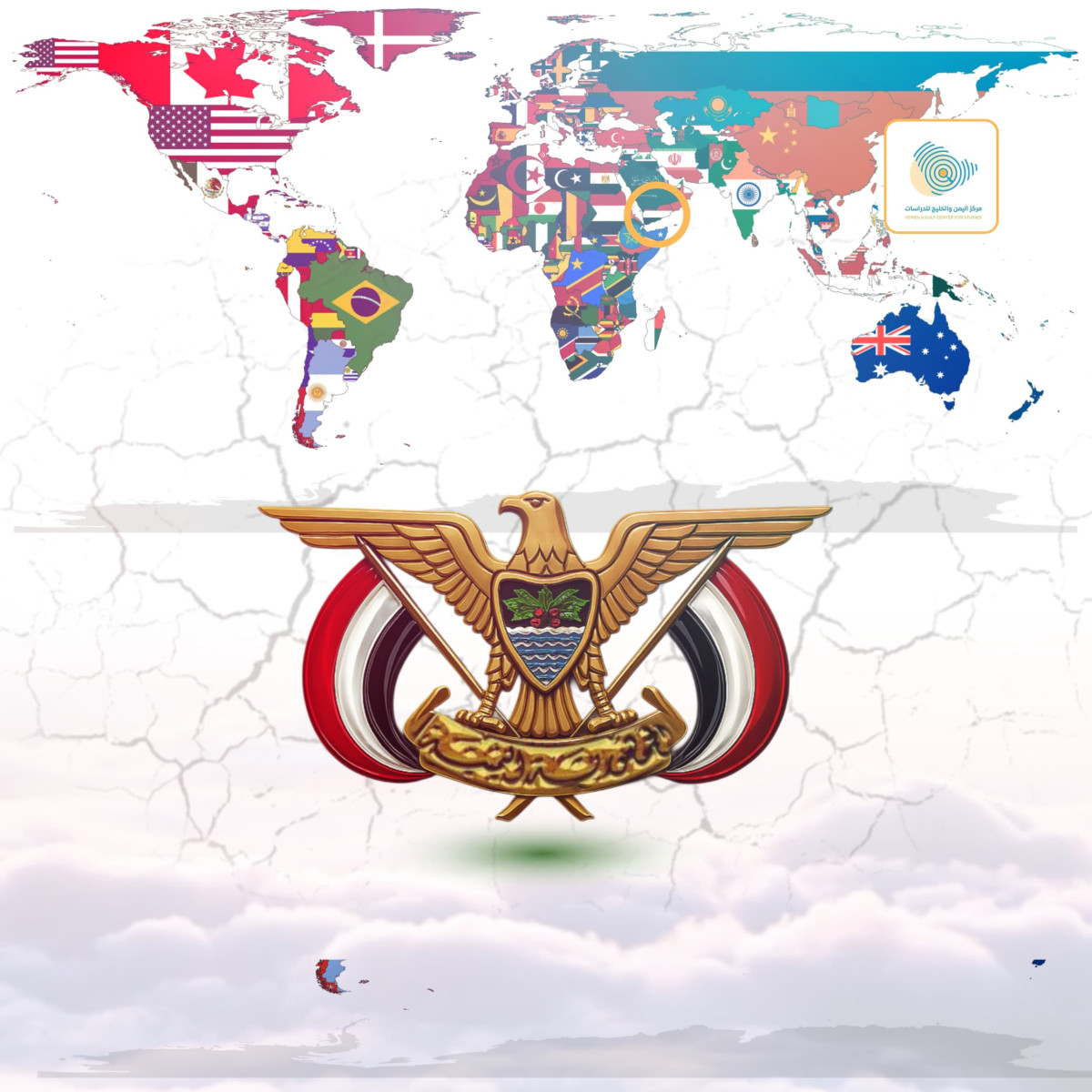Clash of Wings: The Fragmented Landscape of Yemeni Foreign Policy
- 15 Apr 2025

Amid Yemen’s protracted and multifaceted crisis, the Presidential Leadership Council finds itself at a strategic crossroads, endeavouring to formulate a balanced diplomatic approach in the face of persistent and multifarious challenges. Yet, this emerging diplomatic trajectory remains hindered by the tension between aspirations for institutional reform and the entrenched fragmentation of the political landscape. This dynamic raises critical questions regarding the Council’s capacity to deliver substantive diplomatic breakthroughs that will reinforce Yemen’s standing within the international arena.
Renewal Amidst Shifting Sands
Among the notable initiatives undertaken by the Presidential Leadership Council is the appointment of new leadership at the Ministry of Foreign Affairs—an act that signals a clear intent to reinvigorate Yemen’s diplomatic apparatus and reassert the country’s presence in international forums. These appointments offer a glimmer of hope for a diplomatic system long strained by years of conflict, potentially paving the way for the modernisation of an external institutional framework confronting unprecedented challenges.
In this context, the newly appointed Foreign Minister has articulated an ambitious reform agenda to rebuild the ministry’s foundational structure. This vision comprises a comprehensive restructuring of the diplomatic corps, implementing a retirement policy for personnel who have completed their years of service, and introducing measures to curb pervasive corruption in consular revenue streams. Additionally, the plan outlines establishing transparent mechanisms for selecting diplomatic talent—grounded in integrity and merit—with the dual objective of reinforcing national identity and limiting the politicisation of foreign service operations.
The Battle for Influence: Reform vs. Entrenched Interests
The reformist vision the Ministry of Foreign Affairs advanced confronts a profoundly entrenched and multifaceted resistance. Within the Presidential Leadership Council itself, competing factions have emerged—some perceiving the reform agenda as a direct threat to longstanding networks of influence they have cultivated over the years. This resistance is not confined to the Council’s inner circle; it extends to influential actors across the broader Yemeni political spectrum, including the Islah Party, the Southern Transitional Council, and the National Resistance. Each of these entities is engaged in a contest to shape the trajectory of Yemen’s foreign policy in alignment with their divergent interests.
Within this complex landscape, the President of the Presidential Council is confronted with a precarious equation: reconciling a reformist rhetoric that enjoys both domestic and international support with the imperative to preserve internal political equilibria that underpin his continued legitimacy. The appointment of Ambassador Al-Hajri to Washington exemplifies this delicate balancing act. Rather than being perceived as part of a coherent reform strategy, the move has been widely interpreted as a calculated effort to consolidate the President’s personal influence—thereby casting doubt on the depth of the administration’s commitment to genuine diplomatic reform.
Clash of Wings: Fragmented Landscape in the Halls of Power
The internal dynamics of the Presidential Leadership Council are marked by pronounced polarisation, with rival factions competing to steer Yemen’s diplomatic orientation in accordance with their divergent agendas. Central to this contest are the Islah Party, the Southern Transitional Council, and the National Resistance—each advancing its distinct vision for the country’s foreign relations and seeking to shape policy outcomes in its favour.
This intense struggle for influence within diplomatic decision-making circles has deleteriously affected the coherence of Yemen’s foreign policy. Rather than serving as a strategic instrument for advancing overarching national interests, diplomacy has increasingly become a battleground for internal political rivalries. In the absence of a unified strategic vision, diplomatic initiatives are fragmented and proceed along conflicting trajectories, undermining their effectiveness and diminishing Yemen’s capacity to assert itself within regional and international arenas.
The Balance of Regional Relations: Between Dependence and Independence
The Presidential Leadership Council’s engagement with key regional powers involved in the Yemeni crisis underscores a central dilemma confronting Yemeni diplomacy: reconciling the imperative for external support with the pursuit of autonomous decision-making. The Council’s relationship with Saudi Arabia, in particular, remains marked by a dynamic of hegemony and direct political influence, constraining the Council’s capacity to initiate independent diplomatic action.
Simultaneously, the Council has yet to mend its strained relationship with the United Arab Emirates, despite the latter’s significant and ongoing influence within Yemen. This failure has resulted in a strategic void within the regional alliance framework Yemen requires in its struggle to reverse the coup and re-establish state authority. The resulting regional imbalance has, in turn, impacted the Council’s credibility in the eyes of major international actors—including the United States, the European Union, China, and Russia—who have grown increasingly sceptical of the Council’s ability to represent Yemen in multilateral forums credibly.
Towards a New Horizon: A Roadmap for Yemeni Diplomacy
Despite its formidable challenges, the Presidential Leadership Council retains a critical opportunity to redefine Yemeni diplomacy by adopting a new strategic vision. Central to this transformation is the Council’s capacity to forge genuine internal consensus—moving beyond quota-based power sharing toward constructing a unified foreign policy grounded in the pursuit of overarching national interests.
The success of reform efforts within the Ministry of Foreign Affairs is equally vital, serving as the cornerstone for rebuilding a functional and credible diplomatic apparatus capable of restoring Yemen’s stature on the regional and international stages. This endeavour requires resolute political will to confront entrenched centres of influence, institutionalise merit- and integrity-based criteria for selecting diplomatic personnel, and insulate foreign policy from partisan and regional rivalries.
Striking a careful balance in regional relations—one that safeguards Yemen’s decision-making independence while recognising the continued necessity of external support—constitutes a foundational challenge for the Council. Its ability to navigate this balance will significantly influence its success in garnering international backing to confront the Houthis, address the deepening humanitarian and economic crises, undertake reconstruction, and lay the groundwork for a sustainable peace that marks the beginning of a new chapter in Yemen’s modern history.
The stated views express the views of the author and do not necessarily reflect the views of the Center or the work team.
Comments